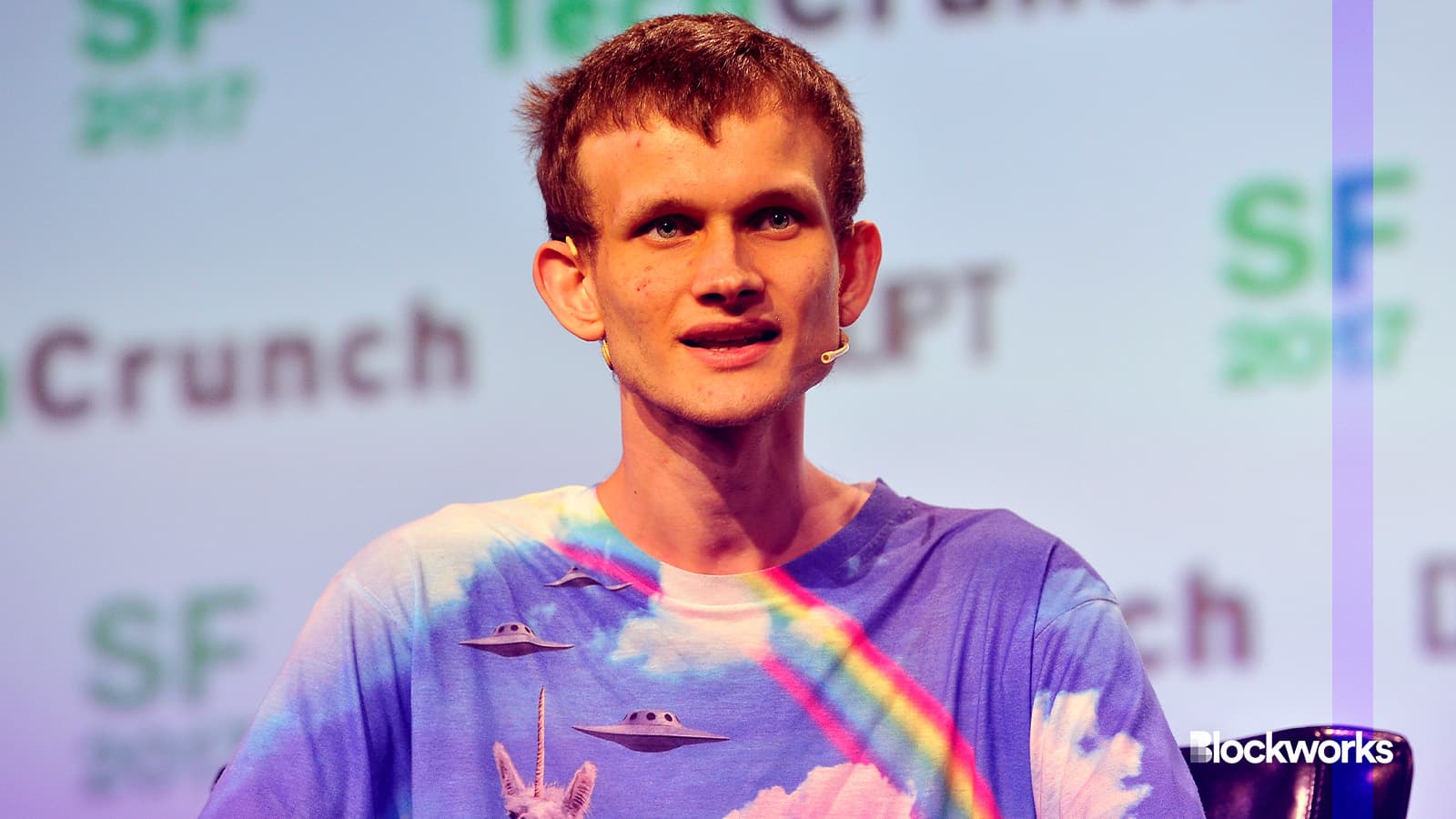Buterin, Coinbase and more to fund Ethereum decentralization grants
Blockworks exclusive: The PBS Foundation has collected $1 million to fund initiatives related to proposer-builder separation on Ethereum

Ethereum co-founder Vitalik Buterin | Steve Jennings/Getty Images for TechCrunch/"775040520SB00115_TechCrunch" (CC license)
The PBS Foundation is opening applications for an initial $1 million in grants for research and development on Ethereum proposer-builder separation.
The non-profit’s pilot phase drew support from Coinbase, Consensys, Fenbushi Capital, Flashbots, Paradigm, the Uniswap Foundation and Vitalik Buterin.
Grants will be disbursed by a council. The council includes representatives from Blocknative, Consensys, the Ethereum Foundation and Flashbots, among others. The foundation’s grant lead is Eugene Leventhal from the research group Metagov.
Read more: For Ethereum rollups, dealing with data remains a bottleneck
First proposed by Ethereum founder Vitalik Buterin, proposer-builder separation (PBS) is the concept of separating proposers — which submit transaction bundles to validators on a blockchain — and builders, which organize the transactions in a specific order.
PBS represents an attempt at decentralization, as the combination of proposing and building gives well-heeled centralized mining pools a competitive advantage.
PBS first went into effect after Ethereum’s Merge to proof-of-stake. Now, the PBS Foundation aims to promote research and infrastructure to address some of the challenges the concept currently faces.
Notably, MEV-boost relays have become centralized since the Merge. Relayers operate between block builders and validators on maximal extractable value (MEV) boosted transactions, selecting blocks with the highest possible fees. Roughly 90% of transactions in the last 500 epochs, or roughly two days, made use of MEV-boost. Of MEV-boost transactions in the past 24 hours, roughly 97% have been handled by five relayers, according to relayscan.
Blocknative, once among those top relayers, discontinued its service in September, citing economic viability concerns. Relayers do not currently collect fees. Uri Klarman, CEO of bloXroute, which runs a large relayer, has advocated fee structures outside of public goods funding to incentivize more relayers to join the fray.
A spokesperson for the PBS Foundation said the grant funding could be used to fund relayers, with a particular emphasis on those who introduce novel designs for relaying.
The funding will also be focused on community and educational materials, data transparency on Ethereum’s mempool and blocks, and research on how PBS can be improved — or even enshrined — on both the primary network and on layer-2 networks.
Get the news in your inbox. Explore Blockworks newsletters:
- The Breakdown: Decoding crypto and the markets. Daily.
- 0xResearch: Alpha in your inbox. Think like an analyst.






